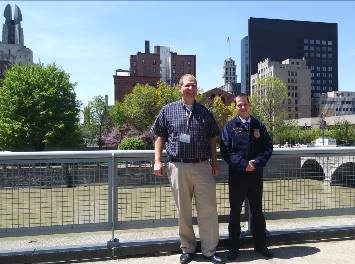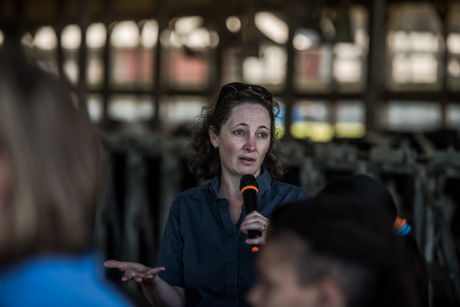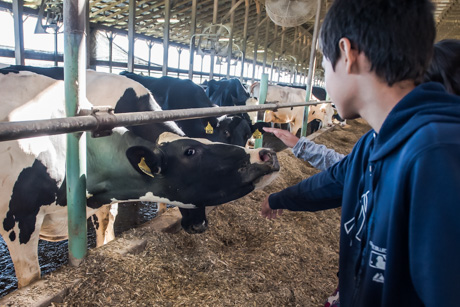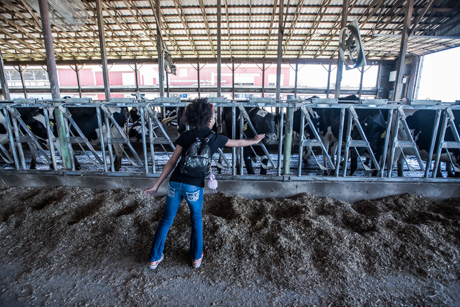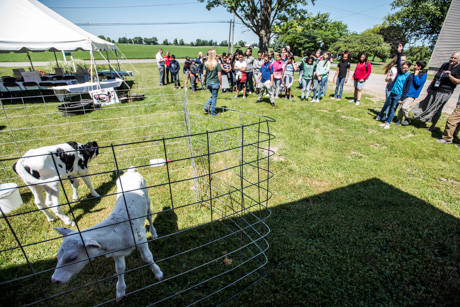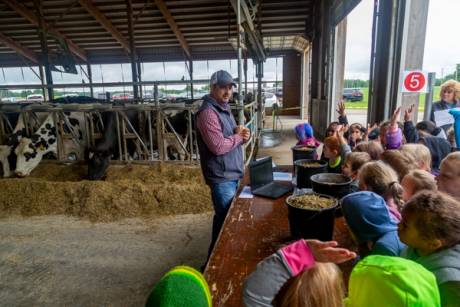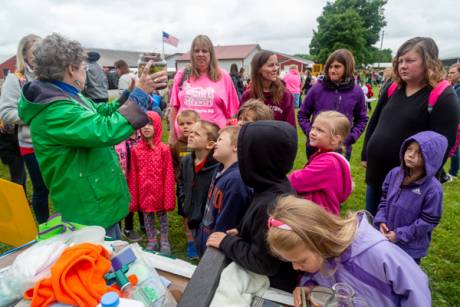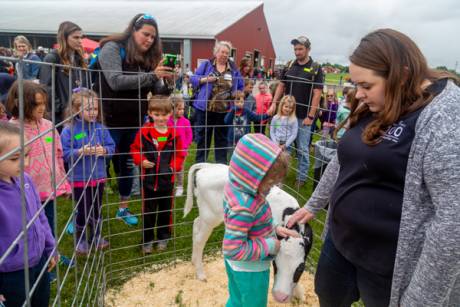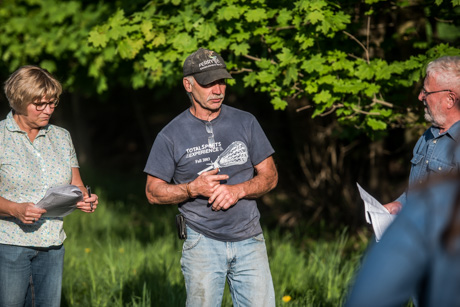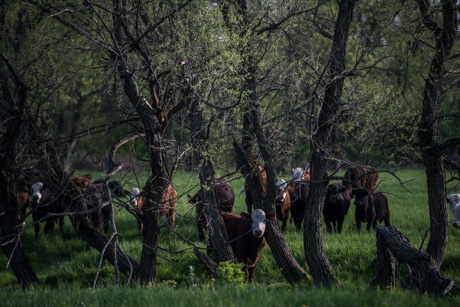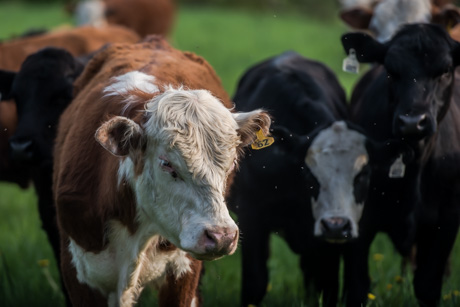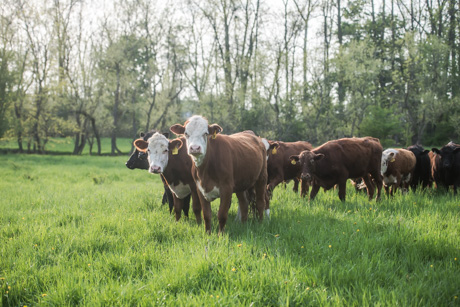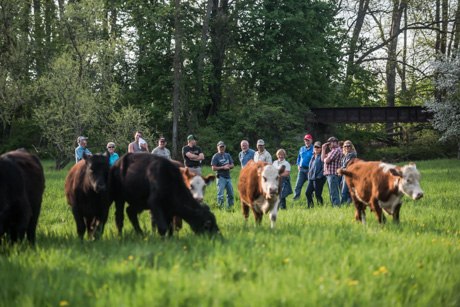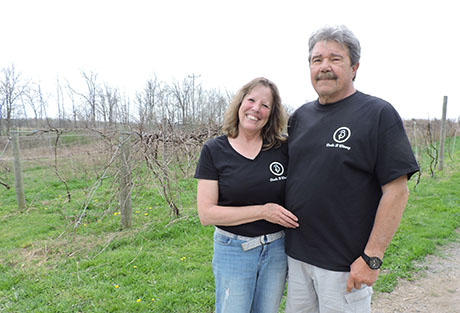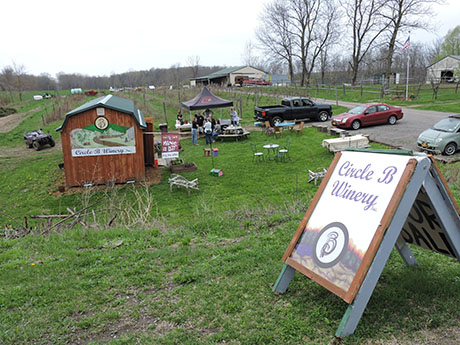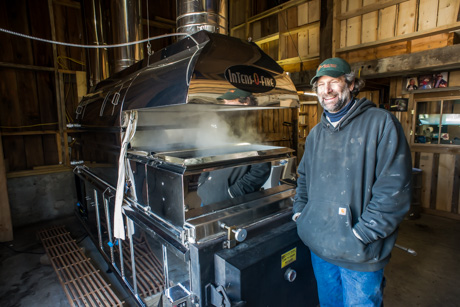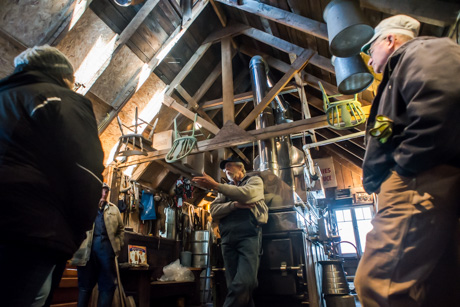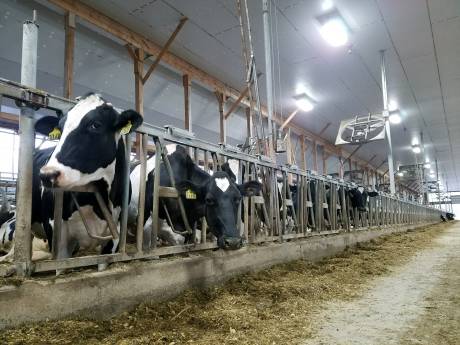Press release:
U.S. Senate Minority Leader Charles E. Schumer today called on U.S. trade officials to secure a level playing field with Canadian producers during the renegotiation of the North American Trade Agreement (NAFTA).
Schumer said that in recent years, Canada has established dairy pricing policies and has maintained high tariffs that have effectively created a “Dairy Wall” stopping most U.S. dairy products from accessing Canadian markets and distorting global trade.
Dairy farmers and producers, like the 340 dairy farmers who make up Upstate Niagara Co-Op, which supplies O-AT-KA Milk Products Cooperative Inc. in Batavia, have been severely hurt by Canada’s manipulative trade practices and it will only get worse without action.
O-AT-KA Milk Products Cooperative Inc., with more than 400 employees and majority owned by Upstate Niagara, has already lost millions of dollars in contracts due to Canada’s actions “Dairy Wall.”
Schumer said that the time to secure a level playing field with Canada by expanding market opportunities and eliminating Canada’s unfair pricing policies – is now and we cannot let this opportunity go to waste.
“Our hardworking New York dairy farmers and producers like Upstate Niagara Co-Op’s 340 farm family members across the Finger Lakes and O-AT-KA Milk Products in Batavia are the most competitive in the world, but they depend on stable and fair rules to compete in a global economy, to sell their dairy products, expand their business and create new local jobs,” Schumer said.
“As trade officials near a deal to renegotiate NAFTA – an issue President Trump and I both agree on – we must make it a top priority to begin reversing restrictive dairy pricing policies in Canada that are hurting our dairy producers at their core, and now is a real opportunity to do just that.”
Schumer explained Canada has an unfair advantage over New York dairy farmers and producers. In addition to Canada’s 270 percent tariff on milk, a program called the “Class 7” pricing program, a market-distorting supply management system, has caused severe pain to New York dairy producers like Avon’s Anderson Farm and their fellow Upstate Niagara Co-Op dairies since it came into force last year.
In fact, Canada has used the Class 7 program to triple its milk powder exports in the past year by creating excess milk production capacity within Canada, then dumping the resulting milk powder onto world markets. To further prove this dumping exists, Schumer added that Canada’s dairy farmers are some of the highest paid in the world, yet Canadian dairy companies are still able to be among the lowest cost sellers of Class 7 products globally.
Anderson Farm is one of the 340 dairy farm members of the Upstate Niagara Co-Op, which is the majority owner of the O-AT-KA Milk Products facility in Batavia. More than 400 employees work at O-AT-KA. Upstate Niagara dairies throughout the Rochester Finger Lakes Region like Anderson Farm depend on O-AT-KA to purchase their milk to then manufacture and sell milk products for the domestic and international markets.
Since Canada’s implementation of Class 7, O-AT-KA lost $19 million in annual sales of Ultra Filtered milk (UF Milk), a product used to make cheese and other dairy products that it had been exporting into Canada. Moreover, the production of this UF milk for the Canadian market had accounted for 20 percent (about 180 million pounds) of all of O-AT-KA’s milk volume.
This severely undercut a $16 million investment made by O-AT-KA in 2012 to build a two-story addition at its Batavia plant to manufacture UF Milk to support its export business to Canada. When Canada unfairly cut off UF Milk imports and implemented Class 7, it dealt a significant blow to the local agriculture economy and was a factor in the current U.S. milk inventory imbalance that is contributing to now drive the price of milk down.
Schumer was joined by Jim Anderson, fourth generation owner of Anderson Farm, O-AT-KA Milk Products Cooperative Inc. President & Chairman John Gould, local dairy farmers, and elected officials.
Gould, who also owns an Upstate Niagara Co-Op dairy farm in Genesee County, said “Canada has a long history of erecting barriers to trade when it comes to dairy and the creation of Class 7 is an example of that. Canada's Class 7 market manipulation has caused harm to O-AT-KA Milk Products and their farm family owners, whose investments in serving legitimate customers in Canada have been blocked.
"As NAFTA is renegotiated, it is time that Canadian gamesmanship ends and a constructive agreement is reached that allows market participation and access under rules that all trading partners can follow. We thank Senator Schumer for his leadership and work in keeping this important issue top of mind as negotiations proceed."
As U.S., Canadian and Mexican trade officials are closing in on a deal to revamp North American Free Trade Agreement (NAFTA), Schumer said now represents a real opportunity to dismantle Canada’s market-distorting policies and ensure a level playing field for American dairy farmers and producers.
Schumer noted that he has directly stressed the importance of securing meaningful changes in our dairy trade relationship with Canada to past and current administration officials, including current United States Trade Representative Robert Lighthizer, President Trump, Canadian Ambassador to the U.S. David MacNaughton, and the U.S. Ambassador to Canada Kelly Craft who have all committed to address this issue.
Right now, products manufactured by O-AT-KA Milk Products include non-fat dry milk powder, buttermilk powder, whey powder, canned evaporated milk, butter, fluid condensed milk, iced coffee, nutritional beverages and other various drinks.
O-AT-KA has gross annual sales of more than $300 million and is a significant employer and economic development engine in Upstate NY’s dairy and manufacturing industries. Schumer said that in order for Upstate Niagara member dairies and O-AT-KA to continue to be global leaders, Canada’s rapacious dairy-related trade policies need to be addressed and that NAFTA represents a major opportunity to do so.
Here's Schumer's letter to Ambassador Robert Lighthizer, United States Trade Representative:
Dear Ambassador Lighthizer:
As the North American Free Trade Agreement (NAFTA) renegotiations come towards a conclusion, I would like to again emphasize the importance of securing meaningful concessions from Canada to provide stable market access for our dairy producers. Securing meaningful and enforceable commitments that will allow U.S. dairy producers to compete with Canada’s on a level playing field should be a top priority in NAFTA renegotiations. As I have expressed to you many times, I strongly believe that we should not miss this opportunity to protect our dairy producers from Canada’s recent predatory trade practices.
As you know, Canada’s Class 7 pricing program, a market-distorting supply management system, has caused severe pain to New York dairy producers since it came into force last year. Canada has also maintained large tariffs on dairy products, including a 270 percent tariff on milk. New York’s dairy farmers and companies like Cayuga Milk Ingredients, O-AT-KA Milk, and Ideal Dairy Farm, rely on market-based trade with Canada for a significant percentage – millions of dollars – of their revenue. Not only are New York’s producers locked out of Canada’s ultrafiltered milk market, but in just a year’s time, Canada has used its Class 7 program to triple its milk powder exports, dumping powdered milk products into global markets and undercutting New York dairy producer’s exports. This Class 7 system is likely a violation of Canada’s World Trade Organization (WTO) commitments, but addressing it quickly through NAFTA renegotiation is needed, rather than waiting for years for a WTO determination. This Class 7 system should be dismantled through new NAFTA commitments.
In our discussions, you have committed to me that you would prioritize addressing this issue through NAFTA renegotiations. The President has also privately expressed to me his explicit desire to address this issue and has publically emphasized, many times, the unfair way that Canada has treated our dairy producers, noting just last month: “Canada must treat our farmers much better. Highly restrictive.”
Our hard working dairy producers are the most competitive in the world, but they depend on stable and fair rules to compete in a global economy. Again, I urge you to make meaningful and enforceable commitments that level the playing field for our dairy producers a top priority as NAFTA renegotiations conclude.
Thank you for your attention to this issue.

